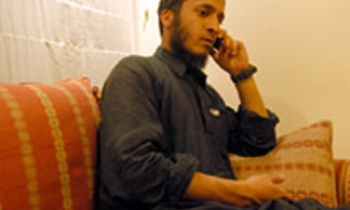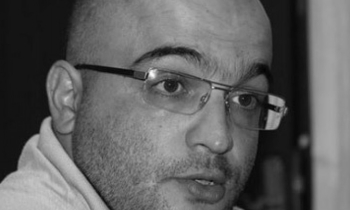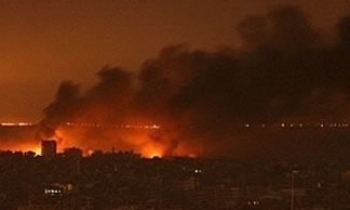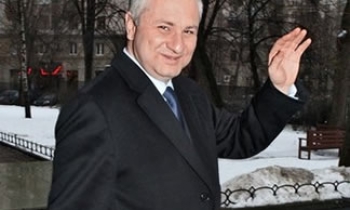Leading international news agencies Thursday launched a boycott of the 2007 Rugby World Cup, plunging the event into controversy on the eve of its opening game.
Agence France-Presse (AFP), Reuters, the Associated Press (AP), Getty Pictures and German agency Deutsche Presse-Agentur (DPA) said no text, photo or video news on the World Cup would be sent for 24 hours in protest at restrictions imposed by the sport's governing body, on the transmission of photos during games.

The protest action is to be reviewed by the agencies on Friday after fresh negotiations.
The French government has called for a negotiated agreement between the parties, acording to AFP. "It is important that the World Cup can benefit from the media coverage that it deserves," said French Foreign Ministry spokesman Pascale Andreani. "We hope that an accord that is satisfactory for everyone can be found," the spokesman added.
The International Rugby Board (IRB) restrictions will particularly hit the use of action pictures on the Internet. "Fundamental rights are at stake, there is no question of letting them be flouted in the name of the protection of the financial interests of IRB," said AFP chairman Pierre Louette.
AFP sent a note to its thousands of clients saying: "Negotiations on the coverage of the World Cup between the International Rugby Board (IRB) and an international media alliance including AFP are still deadlocked. Because of this, AFP has decided to join a boycott of the event."
The news agencies and the World Association of Newspapers (WAN) are opposing conditions imposed by the organisers which allow just 50 photos to be transmitted during each match. This is made up of 20 photos per half and five for each half in any extra time.
At a meeting in Dublin on August 21, IRB and international media agreed that one photo per second could be transmitted during World Cup games. This would allow 2,400 images per half with a maximum of 6,000 if there was extra time. This is in line with agreements already made with the organisers of the Olympic Games and football's World Cup.
Reuters issued a statement on Thursday advising its global client base of the suspension. "Reuters regrets this course of action. However, protecting the interests and coverage rights of our global client base is of key importance to Reuters," Monique Villa, Managing Director Media, said in the statement.
Villa said, "Amid growing confusion and uncertainty over reporting terms, and IRB's unwillingness to engage with us to resolve the dispute over accreditation terms, Reuters is unable to continue coverage as planned. Reuters would like to resume coverage of the Rugby World Cup, to provide the world's media with premium, timely text, photographs and TV. However, freedom of the press and our editorial integrity are at the core of our business, and these must be respected."
AP said it would not distribute text stories, photos or TV images from pre-competition events Thursday to its thousands of subscribers around the world. "Most AP staff members assigned to cover the preliminary events this week have been unable to obtain credentials without first accepting terms proposed by IRB which a broad coalition of news organisations finds unacceptable," said David Tomlin, the AP's associate general counsel for news.
Getty Images and the European Pressphoto Agency said they, too, were suspending photo coverage of pre-tournament events and training. Alison Crombie, a senior director of public relations at Getty, said she did not know when the photo agency's coverage might resume, adding: "We're playing it by ear at this point."
"EPA will reconsider its position should the IRB allow an unrestricted coverage of the event in the future," EPA managing director Joerg Schierenbeck said. "The integrity of our editorial core business and freedom of the press must, above all, be respected."
The organisers have accused the media of staging a "misinformation campaign" over the dispute, AFP reported. World Cup chairman Mike Miller told a press conference Wednesday: "We think our rules are fair to everyone, to those who pay for the privilege to buy certain rights which helps us reinvest in the game, and also to those who get to come along without paying any rights fees."
The AFP chairman said IRB's action came after years of mounting restrictions on journalists in their coverage of major sporting events. "This matter underlines the desire by some organisers to have almost complete control, even if this is to the detriment of real freedom to inform," said Louette.
"The drastic restriction on the number of photos that our clients can use on the internet -- even if the IRB has changed the figure a little from 10 to 40 -- is still unacceptable. We have said this again and again to IRB."
Louette also called for IRB to ease working conditions for video journalists covering matches. "The sport of rugby, good coverage worldwide, and even sponsors, deserve a little more effort." The agencies are also seeking a clarification of a clause which allows IRB to use their photos for promotional reasons without recourse.









